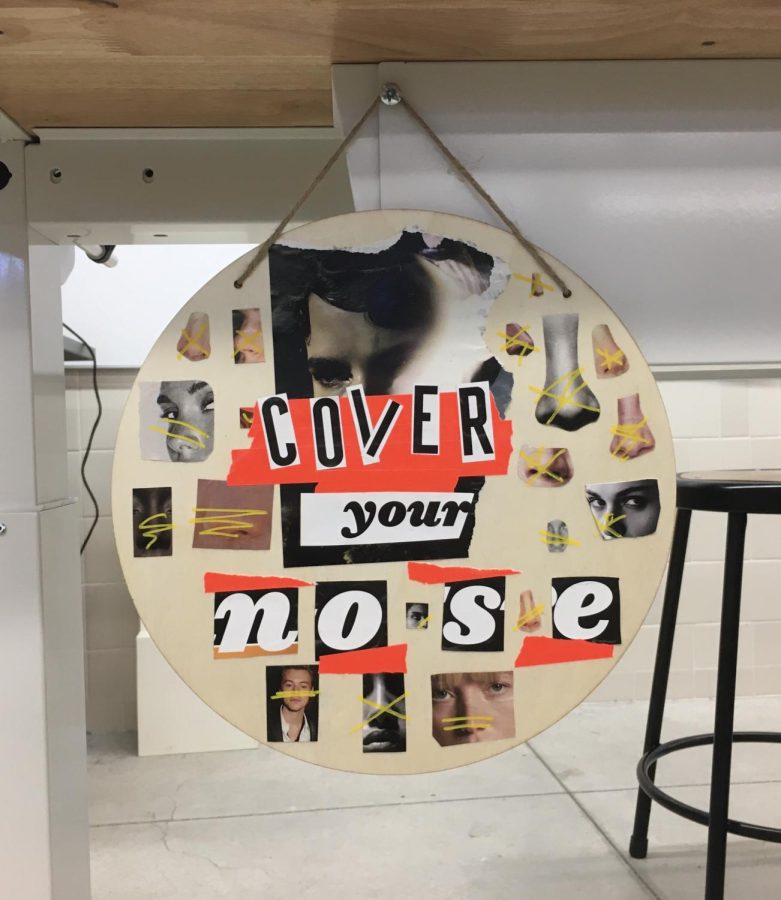Students, please keep your mask over your nose
Adviser Jennifer Jackson has a sign hanging in her classroom reminding students and staff to wear their masks
In the past weeks, we have seen the highest number of COVID-19 cases among New Trier students in this pandemic.
We see the effects of this spike everywhere. Cancelled finals, missing friends at lunch tables, and empty seats in classrooms speak to the number of cases plaguing our school, and the very prevalent fear of community transmission.
One of the best ways to curb transmission is by wearing a mask. But masks only work if they cover your mouth and your nose. Unfortunately, too many students still choose to wear their masks below their nose, which is irresponsible in the current situation.
Since COVID-19 is airborne, the nose happens to be a key entry point for the virus. Many PCR tests swab the nose to check for the disease, with an anterior nasal swab or a long nasal swab. Your chances of contracting the virus are significantly higher when you don’t wear a mask tightly around both your nose and mouth.
Spreading COVID-19 is an issue too. People can be asymptomatic and spread the virus unknowingly, which is why it’s important to take advantage of the school’s saliva testing on a regular basis.
Reinfection has also become a concern with the introduction of new variants. Keeping your mask up ensures you won’t send out nasty respiratory droplets — or receive them.
COVID-19 is rampant not just at New Trier but the surrounding community. According to New Trier’s COVID Dashboard, the “7 Day Rolling New Cases Per Week Per 100K” in Township zip codes was slightly over 1000 cases on Jan. 24, 10 times the CDC Threshold for High Community Transmission.
These numbers pose a danger, though most teens have stronger immune systems than adults, and the hospitalization rate for teens with COVID-19 is extremely low. Yet, the virus still has been proven to have long-term effects on organs, especially for individuals who fall seriously sick after catching the disease. We have a responsibility to be wary, in case the virus transfers to immunocompromised individuals in which the sickness may have more adverse effects.
Though the majority of students and staff have been vaccinated, herd immunity has not prevailed. Therefore, to continue to keep ourselves safe, we can practice the good pandemic habits we’ve worked on since quarantine first started: keep good hygiene, avoid large gatherings, and invest in a higher-quality mask, to name a few.
Two years in, the pandemic may seem never-ending and hopeless. But, it will end eventually. Whether it ends sooner or later depends on us.






































